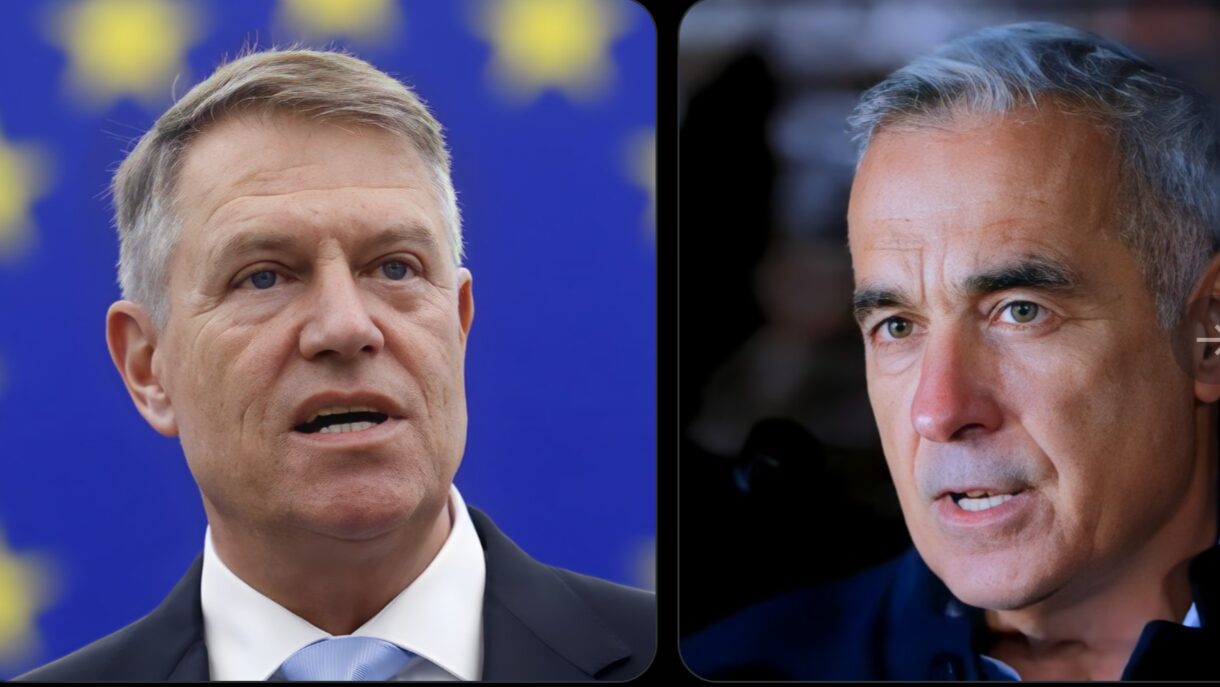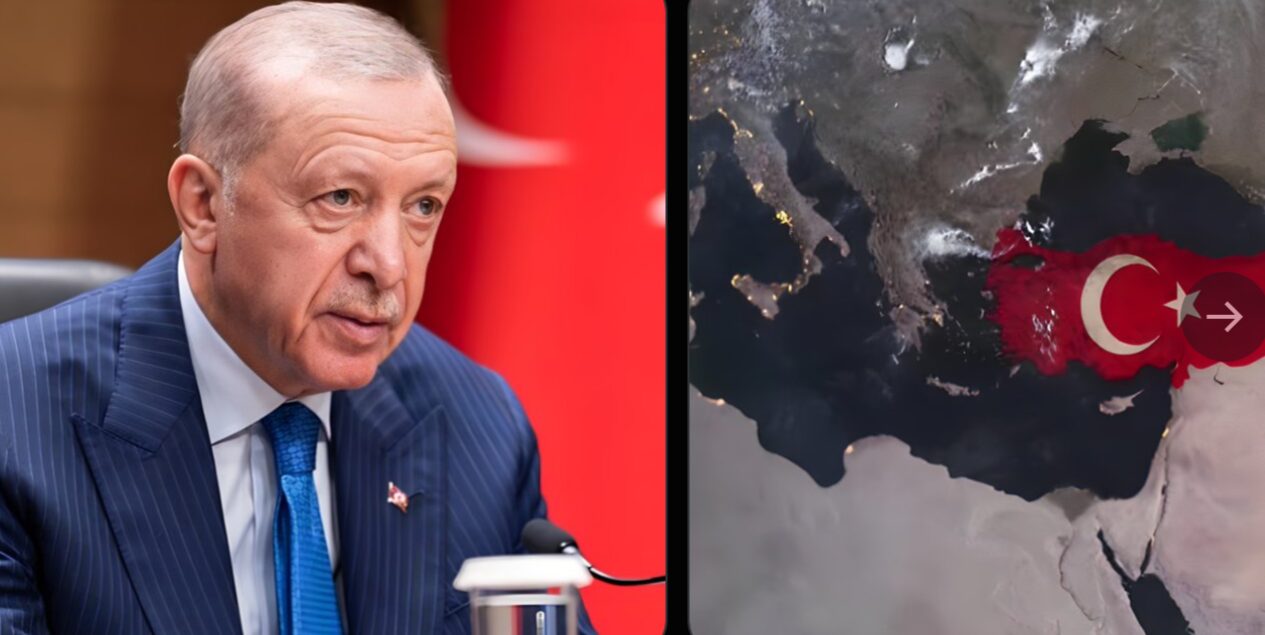ROMANIA COUP UPDATE: Former Romanian President Klaus Iohannis has REFUSED to LEAVE OFFICE after his term expired yesterday
Romania Coup Update: Former Romanian President Klaus Iohannis Has Refused to Leave Office After His Term Expired Yesterday – He now ILLEGALLY occupies his office on behalf of his GLOBALIST MASTERS.
In a dramatic turn of events in Romania, former President Klaus Iohannis has defied constitutional mandates and refused to leave office after his term officially expired yesterday, sparking political chaos and raising concerns about the country’s democratic stability. This unprecedented move by Iohannis has created a tense political crisis, leading to widespread speculation about a potential coup attempt.
Iohannis, who has held the presidency since 2014, was widely expected to step down after his two terms ended. However, in a shocking announcement, he declared that he would continue in office until “the political situation is resolved,” without offering any specifics on how long he intended to remain in power. His refusal to hand over the reins to the newly elected president has led to widespread protests, uncertainty, and international condemnation.
The Constitutional Crisis
Romania’s constitution clearly stipulates that the president can only serve two consecutive terms. Klaus Iohannis’ second term officially ended on December 22, 2024, after the completion of his mandate. According to Romanian law, once a president’s term expires, they are required to hand over power to their successor. In this case, the election of a new president was scheduled for December 20, and the winner of the election was expected to take office immediately following the expiration of Iohannis’ term.
However, in a dramatic twist, Iohannis has refused to vacate the presidential office. His statement suggested that he believed there were “insurmountable constitutional issues” that needed to be addressed before he would relinquish control. The details of these supposed issues remain unclear, but Iohannis has insisted that his continued presence in office is necessary to prevent “instability.”
The situation has sparked a crisis of confidence in Romania’s political institutions. Members of the opposition have condemned Iohannis’ actions as a blatant disregard for the country’s democratic processes and a violation of its constitution. The failure to peacefully transfer power has raised alarm both domestically and internationally, with critics accusing Iohannis of attempting to consolidate power in an undemocratic manner.
The Response from Political Leaders
Romania’s political leadership has been divided in its response to the crisis. On one hand, members of the ruling political parties, many of whom were allies of Iohannis during his presidency, have expressed their support for his decision, citing concerns about alleged irregularities in the election process. Some have called for a “national dialogue” to address the situation, suggesting that Iohannis remain in office temporarily to ensure stability during the transition period.
On the other hand, the opposition, including key figures from the Social Democratic Party (PSD) and other opposition groups, has fiercely denounced Iohannis’ refusal to step down. They argue that his actions amount to a coup attempt and represent a serious threat to Romania’s democratic institutions. The PSD has called for immediate protests and has vowed to take legal action to compel Iohannis to vacate the presidency.
In a statement released by former prime minister and PSD leader, Marcel Ciolacu, the party demanded that Iohannis respect the will of the people and step down without delay. “Romania cannot become a country where the rule of law is suspended and where one man continues to hold power without the support of the people,” Ciolacu said.
International leaders have also expressed concern over the situation. The European Union, which has been a key partner in Romania’s development since the country joined the bloc in 2007, issued a statement urging Romania to adhere to its democratic principles and constitutional processes. The EU’s foreign affairs spokesperson, Peter Stano, expressed hope that the situation would be resolved peacefully, emphasizing that any attempt to subvert democratic norms would have significant consequences for Romania’s standing within the EU.
Allegations of Election Fraud and Political Instability
Iohannis’ refusal to leave office has been partially attributed to the contested presidential election held earlier this month. The election was marred by allegations of widespread fraud, irregularities in voting procedures, and allegations of foreign interference. While the official results declared a winner, many Romanian citizens and opposition leaders believe that the election was rigged to benefit pro-Iohannis candidates.
In the lead-up to the election, there were reports of tampering with ballots, particularly in rural areas where Iohannis has historically enjoyed significant support. Observers noted that there were discrepancies in voter turnout numbers and concerns about the transparency of the electoral process. Some have suggested that Iohannis’ decision to remain in office is a way to “fix” the outcome of the election and ensure that a government sympathetic to his interests remains in power.
In addition to the election-related controversies, Romania has been grappling with a number of deep-seated political and economic challenges. The country has struggled with corruption scandals, a struggling economy, and political gridlock in recent years. The continuing instability in the government, exacerbated by Iohannis’ refusal to leave office, is further threatening Romania’s future.
The Risk of Military Involvement and Civil Unrest
As the situation in Romania continues to unfold, concerns about the potential for violence and military intervention have emerged. While Romania has a long history of democratic governance since the fall of communism, the country’s history of political instability—particularly during the 1989 revolution—has led to fears that the current crisis could lead to widespread unrest.
There are growing fears that the military may be called upon to intervene if the situation escalates further. While the Romanian armed forces have traditionally remained apolitical, there are concerns that political instability could lead to a breakdown in the rule of law. Calls for the military to “protect democracy” have begun to circulate on social media, and some analysts are speculating that the armed forces may be deployed to enforce the rule of law, depending on how the situation develops.
Protests are already taking place across the country, with citizens taking to the streets in both support of Iohannis’ refusal to step down and in opposition to what they perceive as an affront to democracy. Tensions have been rising, with riot police being deployed in major cities to control the growing crowds. The presence of both pro- and anti-Iohannis demonstrators has led to fears of violent clashes in the coming days.
The International Response: What’s at Stake for Romania
Romania’s political crisis comes at a time when the country is facing significant challenges on the international stage. As a member of the European Union and NATO, Romania’s political stability is of crucial importance not only for its own future but for the broader security of the region.
The EU, in particular, has emphasized the importance of maintaining democratic processes in Romania, warning that any deviation from the rule of law could jeopardize the country’s relationship with the bloc. Romania has benefited significantly from EU membership, receiving financial aid and support for key reforms. Any move toward authoritarianism could have serious consequences, including the suspension of funding and diplomatic isolation.
In addition, Romania plays a key role in NATO’s defense strategy, particularly in the context of regional security threats. A destabilized Romania could create a vacuum in the region, making it more vulnerable to external influences, particularly from Russia and other non-EU countries.
Conclusion: Romania at a Crossroads
Romania’s political crisis is reaching a critical juncture, and the actions of Klaus Iohannis have set the stage for an intense struggle over the future of the country’s democracy. His refusal to leave office after the expiration of his term has sparked a constitutional crisis, creating divisions within the political establishment and raising alarm on the international stage.
How Romania navigates this crisis will have significant implications for the future of its political system and its role in the European Union and NATO. As the situation continues to unfold, the eyes of the world will remain fixed on Romania, hoping for a peaceful resolution that preserves the country’s democratic institutions and ensures the peaceful transition of power.

















Post Comment